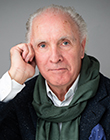2015.04.10
- 調査・研究
© 2020 SASAKAWA SPORTS FOUNDATION
© 2020 SASAKAWA SPORTS FOUNDATION
Mission&Visionの達成に向けさまざまな研究調査活動を行います。客観的な分析・研究に基づく実現性のある政策提言につなげています。
自治体・スポーツ組織・企業・教育機関等と連携し、スポーツ推進計画の策定やスポーツ振興、地域課題の解決につながる取り組みを共同で実践しています。
「スポーツ・フォー・オール」の理念を共有する国際機関や日本国外の組織との連携、国際会議での研究成果の発表などを行います。また、諸外国のスポーツ政策の比較、研究、情報収集に積極的に取り組んでいます。
日本のスポーツ政策についての論考、部活動やこどもの運動実施率などのスポーツ界の諸問題に関するコラム、スポーツ史に残る貴重な証言など、様々な読み物コンテンツを作成し、スポーツの果たすべき役割を考察しています。
2015.04.10
USA Presidents start to think about their legacy towards the end of the second and final term. One of many potential legacies for Obama is a modest redesign of food labels about how much added sugar has been included. The proposal being considered by USA, Food and Drug Administration (FDA) would add a new line on packaged and processed food declaring how many teaspoons of sugar has been added. The Obama’s are well known for living a healthy lifestyle, they all play sports and have a fitness workout most days. They are also concerned about their diet and the provenance of their food, the White House vegetable garden, started by Michelle Obama and her daughters, could be another legacy. The Environmental Working Group, a non-profit organisation that specialises in research and advocacy, analysed 80,000 food products and found added sugar in almost 60%. The Obama’s think it would be more transparent and provide more power of choice to the consumer if they are trying to reduce weight if they knew how much added sugar was in each product. The Obama’s are well aware that obesity is one of the top three social burdens generated by human beings and costs the world as much as the number one - war, armed violence and terrorism - and number two, smoking.
Yet existing evidence indicates that no single intervention is likely to have a significant overall impact in reducing obesity. That’s just one of many depressing conclusions of the McKinsey Global Institute (MGI) report published last November. MGI is the business and research arm of McKinsey, the global consulting firm. Although the report recommends widespread intervention, including restructuring urban and education environments to facilitate physical activities, it had to admit that no one really knew what they were doing.
In the wider world of physical activity and fitness, I wonder how many would be as honest and admit they don’t really know what they’re doing either? Education and personal responsibility are critical elements of any programme aiming to reduce obesity and increase fitness levels but both are a lot more difficult and require greater will power than giving into the trend to over-eat and over-drink. It would be easier if people just ate less and exercised more but the temptation provided by ‘western diets’ of sugar, fat, salt laden products washed down with alcohol, conspire to a short term high compared to the aches and pains from exercising. Exercise sadly offers many empty promises to the masses while only a few get the endomorph rush.
Food industry experts constantly disagree on the science of eating and they are currently lining up to argue for or against the proposed added sugar line while nutrition advocates say the strong reaction shows the stakes are high. Fitness industry experts find little common ground on weight loss for mere mortals, let alone achievements for the body obsessive. These experts have over the years created strength and resistance training, cardio workouts, limit testing classes, HIIT or high intensity interval training, low intensity classes, dual habits, indoor and outdoor military style boot camps, not to mention the flexibility, dynamic, static, and anaerobic workouts, to name but a few. Everyone has a pet theory, a snippet of knowledge and an article from a celebrity or DVD or blog on what works best. A HIIT developed in the 70’s for the Japanese Olympians by Dr Izumi Tabata, who founded Tabata training, has, 40 years later, become one of the most popular HIIT workouts in the UK.
Albert Einstein said ‘whatever we’re looking at we don’t understand it’ and as the debate rages amongst the experts and new ‘solutions’ appear each month you realise Albert was right. The slimming industry, which constantly re-invents itself, manages with community support and some cheap scales to be 3 to 4 times bigger than the fitness industry.
The UK Government produce five fact sheets on physical activity guidelines. Fact sheet 4, for Adults 19-64 years, suggests we should be ‘active’ daily and over a week this activity should add up to at least 150 minutes of ‘moderate intensity.’ In the USA, Harvard Medical School publish calories burned in 30 minutes for people of three different weight ranges with over 100 activities listed by categories including ‘gym activities’, ‘sports’, ‘outdoor’, ‘home’, ‘daily life’ and ‘occupational’. So if you’re running a 6 minute mile and you weigh 185 pounds in 30 minutes you burn 733 calories, compared to sitting at your computer only burns 61. Giving guidance for a whole nation can only be general at best in the hope that self interest and education may kick in but short term history tells us that the number three social burden generated by humans will be with us for some time as no one understands it.
David Minton, UK Correspondent for SSF.
Director, The Leisure Database Company. (www.leisuredb.com)
レポート執筆者

David Minton
Founder, LeisureDB
LeisureDB for the most accurate and insightful data and reporting on the fitness industry.
https://www.leisuredb.com/
Special Advisor, Sasakawa Sports Foundation